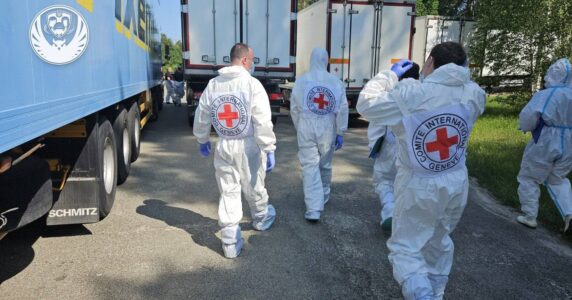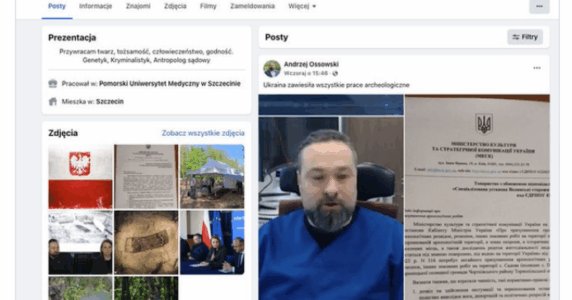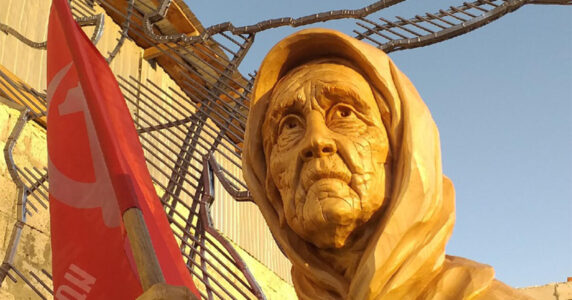Navigation and useful materials
The Amnesty International report dedicated to the situation in Ukraine became a true gift for the Russian propaganda. International human rights defenders have accused the Ukrainian military of allegedly endangering the civilian population.
Equating the aggressor and the victim of aggression, disregard of numerous documented facts of Russian war crimes, demonstrative neglect of the context not only provoked a flurry of criticism, but also amplified the discussion about the effectiveness and relevance Amnesty International and other bureaucratized global organizations in today’s challenges. Oksana Pokalchuk, head of the Ukrainian office, resigned in protest. Co-founder of the Swedish branch of Amnesty Per Vestberg did the same, alongside 80 employees of the Norwegian office. Frank Johansen, head of the Finnish office, reported that following the publication of the report, the organisation lost 400 donors.
However, the Secretariat continues to ignore the problem: AI refuses to recognise any shortcomings in its work, and they deny having received information from people in filtration camps. Agnes Callamard, the organization’s Secretary General, called the critics “mobs” and “trolls,” accusing them of “war propaganda.” The same position is publicly defended by AI’s Senior Crisis Adviser Donatella Rovera, who was also featured in the manipulative CBS “documentary” on Western military aid “disappearing” in Ukraine.
Read also: What’s Wrong with the CBS Story about Military Aid to Ukraine
Russian propagandists are predictably trying to squeeze the most out of the AI report. Especially considering they predictably declare all the destroyed civilian objects to be “Azov bases,” including the maternity hospital and the drama theatre in Mariupol.
Russian Foreign Ministry spokeswoman Maria Zakharova was among the first Russian officials to respond to the Amnesty report on Telegram. She said that Russians “constantly talk” about the “violations” described in the report, once again accusing the Armed Forces of Ukraine of using civilians as a “human shield.”
Similar statements were made by the Russian embassy in the UK and the Russian mission in Geneva. The Permanent Representative of Russia to the UN, Vasily Nebenzya, repeated Zakharova’s words almost verbatim at the UN Security Council meeting devoted to the situation at the Zaporizhia NPP, accusing the West of giving Kyiv “carte blanche for any crimes.”
Russian diplomats also tried to tie Amnesty’s claims against the Ukrainian troops with their own efforts aimed at discrediting and blocking Western military aid to Ukraine.
The Russian embassy to the USA accused Washington of “pumping Ukraine with weapons.”
In the first week after the publication of the report, 235 mentions of Amnesty International were recorded in Telegram channels from the pro-Kremlin pool. Meanwhile, only one publication mentioned AI between August 1 and 3. It referred to a June report in which human rights defenders accused Lithuania of mistreating illegal migrants from the Middle East.
The publications were about Amnesty’s report itself, comments by Zakharova and other Russian speakers, response of the official Kyiv, as well as the article by Political columnist Paul Taylor and Donatella Rovera’s participation in the CBS story. Taylor criticised the Ukrainian authorities for rejecting Amnesty International’s claims and called for them to be carefully considered. He also emphasized that Western countries should “ensure that the billions in taxpayer money being poured into Ukraine to support its self-defence and keep it financially afloat are being properly spent.”
Propagandists spread the following messages:
- international human rights defenders have recognised that Ukrainians “fight as terrorists” and violate international humanitarian law, which the Kremlin constantly talks about;
- human rights defenders have recognised that the Armed Forces of Ukraine turn civilian objects into legitimate military targets, so the Russians attack schools and hospitals legitimately;
- The West ignores the crimes of the Armed Forces of Ukraine and continues to pump Ukraine with weapons.
After the publication of the AI report, over 1600 publications dedicated to it appeared in the Russian segment of online media.
The tone of publications on Russian government and pro-Kremlin websites was accusatory. The wording of the headlines said that Amnesty International “accused,” “exposed” Ukraine, “recognised the crimes” of the Armed Forces of Ukraine.
News about the response of the Ukrainian authorities was accompanied by emotionally charged headlines. Russian media claimed that the Amnesty report enraged, infuriated, angered, frightened Volodymyr Zelenskyy, who “refused to put up” with it.
Authors of reviews also promoted another message, on their own or in the form of an expert quote:
- the Amnesty report is a signal for Kyiv, preparation for a change in public opinion, an indicator of the West’s “fatigue” with Ukraine.
These articles were published on Reporter, Politnavigator, Tsargrad, RT.
A similar idea was promoted by Russian parliamentarians: Vice Speaker of the Federation Council Konstantin Kosachov, Senator Vladimir Dzhabarov, Head of the Committee of the State Duma for International Affairs Leonid Slutsky. Sergey Tsekov, member of the Federation Council representing the occupied Crimea, claimed that the AI report was proof that it was Ukrainians, not Russians, who attacked the colony in Olenivka and killed the captive Azov prisoners.
During this period, there were also over 1600 publications in European languages dedicated to Amnesty International’s report. It is mainly news and coverage of key information events: the release of the report and reactions to it. Publications in English, French and German dominate among the materials.
As a rule, media outlets took into consideration Kyiv’s position and relayed the statements of Volodymyr Zelenskyy, Minister of Foreign Affairs Dmytro Kuleba, adviser to the head of the Office of the President of Ukraine Mykhailo Podoliak, and other officials who pointed to the manipulativeness and bias of Amnesty’s conclusions. But the alleged violations of the Ukrainian military still making headlines could not help but harm Ukraine’s image.
Apart from Russia’s RT and Sputnik, the American website SOTT was seen promoting pro-Russian narratives. The latter illustrated the material about the Amnesty report with a photo of Vlad Sodel, which was taken in Kyiv on February 18, 2014. The photo depicts blood-stained Mykola and Ihor Kuznetsov, Maidan participants. The photo is accompanied by the caption: “Civilians caught in crossfire in War in Eastern Ukraine.”
Russian propagandists have used neutral publications in Western media to promote their own narratives to Russian-speaking audiences. On August 5, a series of compilations of anonymous comments with headlines of a certain vector were published. They were supposed to create the impression of non-acceptance of the Ukrainian position and of Zelenskyy personally in the West:
- Readers of Le Figaro harshly criticized Zelenskyy after his claims to Amnesty International
- Readers of Die Welt condemned Zelenskyy for his criticism of Amnesty International’s report
- “They lead people to slaughter”. The British are shocked by Amnesty International’s report on AFU crimes
- After Amnesty International’s report about the war crimes of the Ukrainian Armed Forces, Daily Mail readers called Zelenskyy a serial killer
About 35,000 tweets dedicated to Amnesty International were found on Twitter. The absolute majority were about the “Ukrainian” report. More than 20 thousand tweets are written in English, about 4 thousand in Ukrainian, 3.8 thousand in Russian, 1.6 thousand in German, 1.1 thousand in French.
Zelenskyy was accused of using the civilian population as a “human shield” by the American public figure Ajamu Baraka, who repeatedly promoted pro-Russian narratives, including on the RT channel.
Amnesty International’s posts with positive comments were shared by users who had previously shared conspiracy theories, anti-globalist and anti-American narratives.
Approving messages about the Amnesty report were published from openly anti-Ukrainian accounts involved in the propaganda of the “special operation.” They ridiculed the reaction of the Ukrainian government.
For Russian propaganda, Amnesty International’s report became another “proof” of the “Nazi” nature of the “Kyiv regime” and an argument for promoting anti-Ukrainian narratives. Accusing the Armed Forces of Ukraine of violating the rules and customs of war should equalize both sides of the conflict in the eyes of the Western audience, and further demonize Ukrainians in the eyes of the Russians.
The message about “the West’s fatigue of Ukraine,” which Russians try to prove with the report, targets primarily the domestic and Ukrainian audiences. The Kremlin denies the agency to both Ukraine and Amnesty International. Propagandists depict the situation as a game of puppeteers with puppets, the latter being, in their opinion, both Kyiv and international human rights defenders.
Blocking Western military aid to Ukraine is a fundamental issue for the Kremlin. Therefore, the propaganda is trying to use the Amnesty case with this purpose, additionally promoting the subject of “theft” and “huge losses” of equipment and weapons provided by the West to Ukraine.
If you have found a spelling error, please, notify us by selecting that text and pressing Ctrl+Enter.


